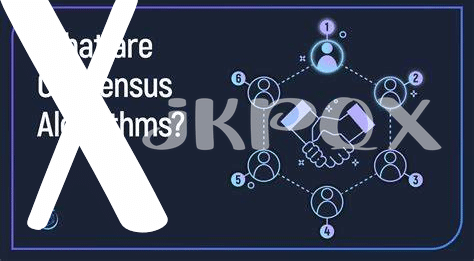🤔 What Are Nodes and Why Do They Matter?

Imagine a bustling city where everyone helps out by passing messages along to keep the community informed and safe—that’s kind of what nodes do in the Bitcoin network. These digital guardians ensure every transaction is recorded and shared across the network, making sure everyone agrees on who owns what without the need for a central overseer like a bank. It’s their job to maintain the ledger, a detailed book of transactions, which is crucial for the network’s transparency and trustworthiness. With nodes playing such a vital role, their existence allows Bitcoin to operate in a decentralized manner, keeping the system honest and secure. Here’s a simple breakdown of their functions:
| Function | Description |
|---|---|
| Verify Transactions | Nodes check the authenticity of Bitcoin transactions. |
| Maintain the Ledger | They keep and update a record of all transactions. |
| Distribute Information | Information about transactions and blocks is shared across the network. |
| Decentralization | Helps Bitcoin operate without a central authority. |
Their continuous effort ensures the integrity and reliability of the entire Bitcoin network, making each node an essential pillar of the cryptocurrency world.
🌐 Nodes: the Messengers of Bitcoin’s Network
Imagine a bustling city where everyone communicates through a series of whispers, passing along messages from one end to another. In Bitcoin’s world, nodes are like these diligent messengers, constantly talking to each other, making sure every piece of information gets where it needs to go. They’re the unsung heroes who keep the whole system running smoothly. Every transaction, every bit of data that makes Bitcoin work, travels through these nodes. They check the details, ensuring everything is correct and honest. This way, they play a key role in keeping Bitcoin secure and operational. Just like in our city of whispers, if the messengers do their job right, the message stays clear and true. Nodes ensure that the network remains decentralized, a critical aspect keeping Bitcoin free from any single control point. For more on the importance of decentralization and other discussions around Bitcoin, have a look at https://wikicrypto.news/the-environmental-controversy-bitcoin-minings-carbon-footprint. This delicate balance of communication and verification is vital, supporting the network’s reliability and trust, much like the foundation beneath a towering skyscraper.
🛡️ Keeping Bitcoin Honest: the Role of Nodes

In the big world of Bitcoin, nodes play the role of the guardians. Think of them as the vigilant eyes and ears that keep everything in check. They listen to transactions happening around the globe and make sure everything follows the rules. If someone tries to cheat or make a move that doesn’t fit the Bitcoin rulebook, nodes are the first to shout, “Hey, that’s not right!” This is crucial because it helps everyone trust that their Bitcoin is safe and being treated fairly, without needing a big company or government to watch over things.
The magic of Bitcoin lies in its community and the nodes are key players in this. By each node keeping an independent log of transactions, they agree on what’s true through a sort of group consensus. This means if a few nodes go rogue or are taken down, the rest of the network can carry on without missing a beat, ensuring Bitcoin remains reliable. This democratized approach is what makes Bitcoin remarkably resistant to fraud and corruption, preserving the purity of its digital gold.
🔄 Nodes and Transactions: How Does It Work?

Imagine every time you send a message to a friend, there’s someone to make sure it gets there safely. That’s what nodes do in the Bitcoin network. They pass around information about transactions, like pieces of a puzzle, until the full picture reaches everyone who needs to see it. This ensures that when you send Bitcoin, it goes exactly where you intend. Each node keeps a copy of all these puzzles, making it super difficult for anyone to cheat by saying they have more Bitcoin than they actually do.
Keeping Bitcoin honest and moving smoothly requires a lot of teamwork. Nodes across the globe talk to each other, sharing updates about who’s sending Bitcoin to whom. This global game of telephone isn’t just about passing messages; it’s about securing the currency and making sure every transaction follows the rules. Interestingly, this decentralized approach is how Bitcoin maintains its freedom from central control, offering a peek into a future where trust is built not on promises, but on cryptographic proof. For those interested in learning more about the broader implications of Bitcoin, including its cultural impact, consider exploring bitcoin in literature and film: a cultural study regulatory outlook.
📈 Nodes’ Impact on Bitcoin’s Value and Security
Imagine a bustling city where everyone plays a part in keeping the place safe and prosperous. In the world of Bitcoin, nodes are like the residents of such a city, each one contributing to the network’s well-being and value. Just as a well-maintained city attracts more people, a strong network of nodes makes Bitcoin more valuable. Why? Because more nodes mean more security. Each node holds a copy of the entire transaction history, making it extremely tough for anyone to cheat or alter records. This widespread vigilance ensures that Bitcoin remains transparent and trustworthy, which in turn encourages more people and businesses to use and invest in Bitcoin. Moreover, the security provided by these nodes plays a crucial role in protecting the system against attacks, thereby preserving the value of Bitcoin. Greater participation signifies a robust network, creating a positive feedback loop that enhances Bitcoin’s value and attracts even more participants. The concept is akin to adding more lights to a city; the brighter it shines, the more people want to be a part of it.
Here’s a simple breakdown of how nodes impact Bitcoin:
| Aspect | Impact |
|---|---|
| Security | More nodes mean a more secure network, making it harder for bad actors to manipulate. |
| Value | A secure and trustworthy network attracts more users and investors, increasing Bitcoin’s value. |
| Network Health | Nodes ensure the network runs smoothly, processing transactions efficiently and accurately. |
Thus, the tireless work of these digital caretakers fosters an environment where trust, security, and value coalesce, proving that in the realm of Bitcoin, the strength truly lies in its numbers.
🚀 Running Your Own Node: Perks and Considerations

Thinking about taking a hands-on approach to diving into the world of Bitcoin? Setting up your own node might just be the adventure you’re looking for. By running a node, you become a vital part of the network, helping to validate transactions and maintain the integrity of the blockchain. It’s a bit like deciding to keep a part of the internet running from your own home. This means you have a say in the future of Bitcoin, contributing to its health and decentralization. Plus, it enhances your privacy since you’re verifying transactions yourself, rather than relying on third parties. But it’s not just about the warm, fuzzy feeling of contribution; it’s also about taking control of your financial privacy and playing a more active role in the ecosystem.
However, it’s not all rainbows and sunshine. Operating a node comes with its own set of challenges and considerations. For starters, you’ll need to dedicate some of your computer’s resources like storage space—Bitcoin’s ledger is quite large and only grows over time. Then there’s the aspect of staying online as much as possible to be effective. But beyond the technical, there’s the wider picture to ponder. How does participating as a node fit within the larger context of Bitcoin’s regulatory environment and societal impact? It’s a landscape that is always evolving, manifesting in new ways, such as philanthropic initiatives funded by bitcoin donations regulatory outlook. By understanding these dynamics, you can better appreciate the role your node plays not just in securing the network, but in the wider implications for how Bitcoin is perceived and used across the globe.
